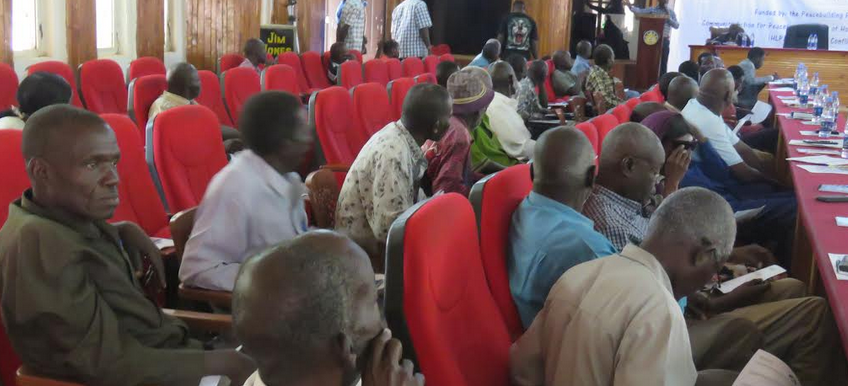A five-day customary law review and training workshop for the Fertit community in Wau County, Western Bahr el Ghazal State, commenced in Wau on Monday.
The workshop brought together the seven communities of Viri, Bor, Bai, Ndogo, Sere, Golo, and Bongo and aims at reviewing and documenting their customary laws and incorporating them into the state law.
The customary law review and training workshop is being organized pursuant to the recommendation of an initial field assessment of the traditional justice systems and status of Housing, Land, and Property (HLP) issues conducted in both Wau County and the municipality in February and April 2022.
Speaking during the opening, the Baggari paramount chief, William Kamilo, said this was the first the communities gathered to discuss their customary laws.
“This is the first time for these Fertit communities of Wau County to gather like this, and on behalf of the chiefs of Wau County, I welcome all of you who come to participate in this important meeting,” he said. “We have been hearing about the ongoing reorganization of other tribes’ customary law in South Sudan but today, it is our chance as Fertit.”
“Let us hope that we participate in good faith in order to produce good laws for our young generation,” chief Kamilo added.
The youth representative at the meeting, Angelo Selberto, said he expects the workshop to produce and document the desired customary laws.
“I am very happy and hope that at the end we will be able to produce good customary laws for the county,” he said. “It is us the youth suffering and the upcoming generation will be at risk but today will mark a way forward on how elders stand with youth.”
A women representative, Ann Roko, welcomed the workshop and said women will benefit from the laws.
“We women are the victims in the absence of good governing laws and where there are no laws, women are at risk,” she said.
Roko called on the young generation to follow in the footsteps of their elders in maintaining cultural norms.
Representing the state government, the state information minister, Samuel Nicola, said expects he expects the outcome of the workshop to dignify the Fertit communities.
The main recommendations in the assessment were the recommendation for ascertainment review and documentation of customary law and traditional practice of the various communities living in Western Bahr el Ghazal state.
Last month, the Luo community of Jur River County also conducted a similar workshop.
This customary law review is under a peacebuilding project implemented by IOM, FAO, and United Nations Mission in South Sudan (UNMISS).




